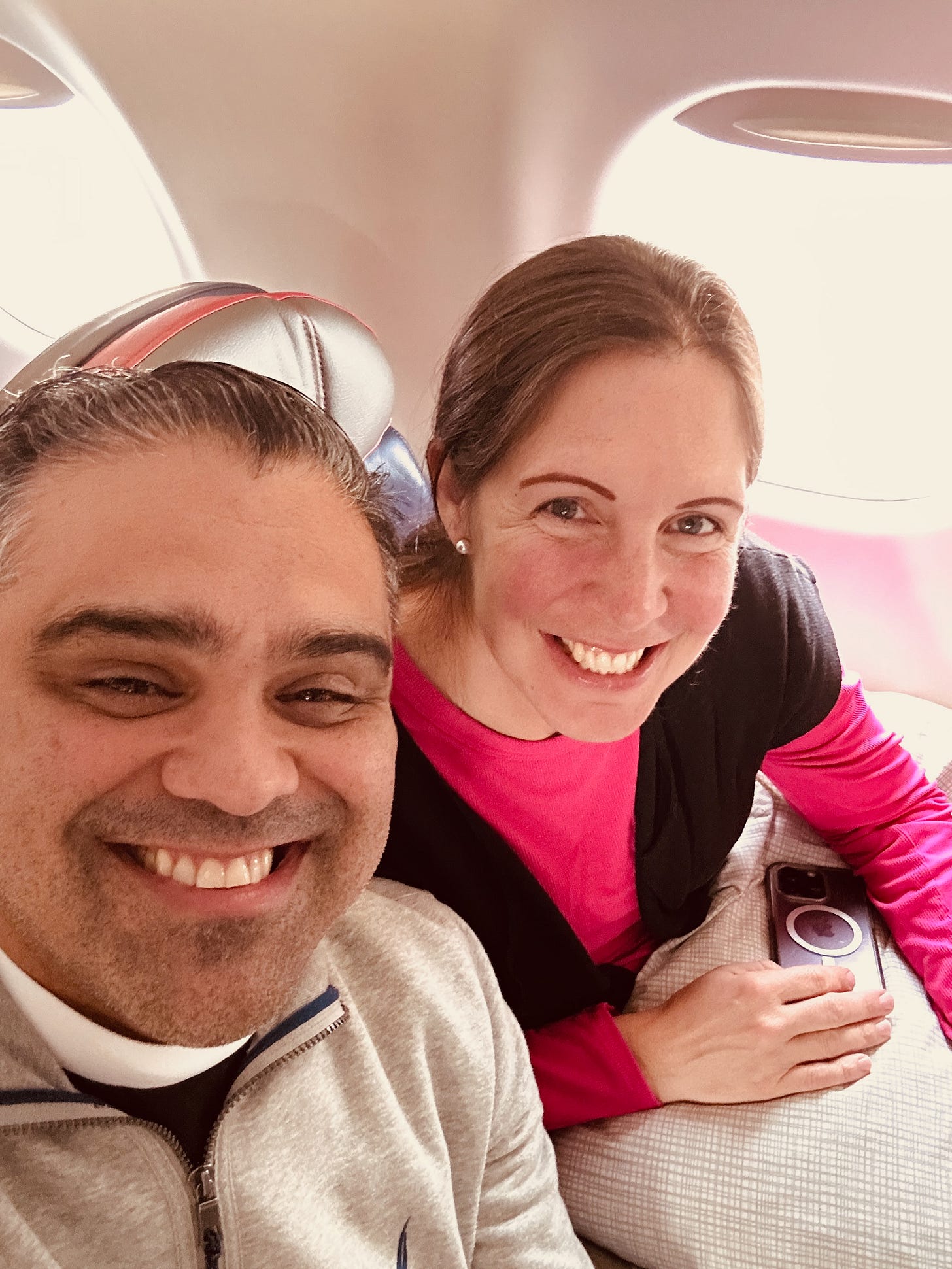A Quick Update from Pichilemu, Chile
Update from a quaint beach town in Central Chile.
We left Pensacola around 1 pm on Monday and arrived at 11 am on Tuesday after a 9-hour red-eye to Santiago, Chile. While the trip was uneventful, our weariness caught up with us, but coming to Santiago was the first leg. We still had an additional three-hour drive to Pichilemu.
Our wonderful host took us to an iconic lunch spot in a little town on the way. The food portions were significant, and we fed three adults for $33. Pork Ribs, roast, fresh-made bread, and strawberry juice all locally produced with the typical colorful South American layout. Walking the streets of this little town reminded me a lot of my childhood. Some little towns in Chile still have that ol’ fashioned look and taste.
When I travel abroad, one of my fascinations is to ask the locals whether the so-called advancement of globalization has been good for the country. I know that the answer in my home country of Brazil is that globalization has profoundly damaged our ethos as a people. In Chile, something similar is happening. Maybe the classic siesta is an example of this. It was common for people to rest from midday to 2 or 3 in the afternoon. Businesses would shut down for a few hours while Chileans would take a quick nap and prepare for the rest of their work day. Further, it was also an opportunity for people to go home and eat lunch together (lunch being the principal meal of the day). The ritual (though not enforced) provided a sense of tranquility and stability for the culture. Nevertheless, globalization has distanced business from the household. The siesta now is only practiced in small little towns. Large towns like Santiago have gone the way of all flesh, abandoning classic rituals and choosing the mechanistic view of work separated from familial bonds.
After 22 sleepless hours, we finally arrived at the lovely Pichilemu in central Chile. Our hotel is frontal to the spectacular black volcanic sand beaches, but before we could take a better look, we entered a 90-minute coma. When we woke up, our host picked us up and took us to a church reception. The congregation was filled with children and gave all appearances of deep affection for one another.
Chilean barbecues are much like Brazilian, and the fellowship was equally delightful. My Spanish has been rusty since the year of our Lord 1992, but with a little error here and there and everywhere, much was accomplished.
What Am I Doing in Chile?
The impetus for my travel is essentially two-fold. First, to represent the CREC in Chile. It has been my joy as PMOC of the CREC in these last 15 months to discuss and propose a serious denomination that cares deeply about the Reformed faith, but I am also eager to offer a robust vision of culture and cultus. The CREC stands unapologetically for the Gospel in the public square.
Secondly, I will speak at an eschatology conference where I will address eschatology in redemptive history and a history of Satan from garden to hell. One of the goals is to introduce postmillennial thought to a largely dispensational culture and offer a biblical theology paradigm to read the Scriptures more acutely aware of type and symbols.
I hope to meet several Chilean Reformed leaders, some coming to Pichilemu to introduce their work and network. I pray the conversations will be fruitful.
Tchau.



Chilean asados very similar to Brazilian churrascos...except for the wine! Beautiful wine!
That sounds like a wonderful conference to attend or at least listen to the talks.
May God bless you mightily and safe travels back.